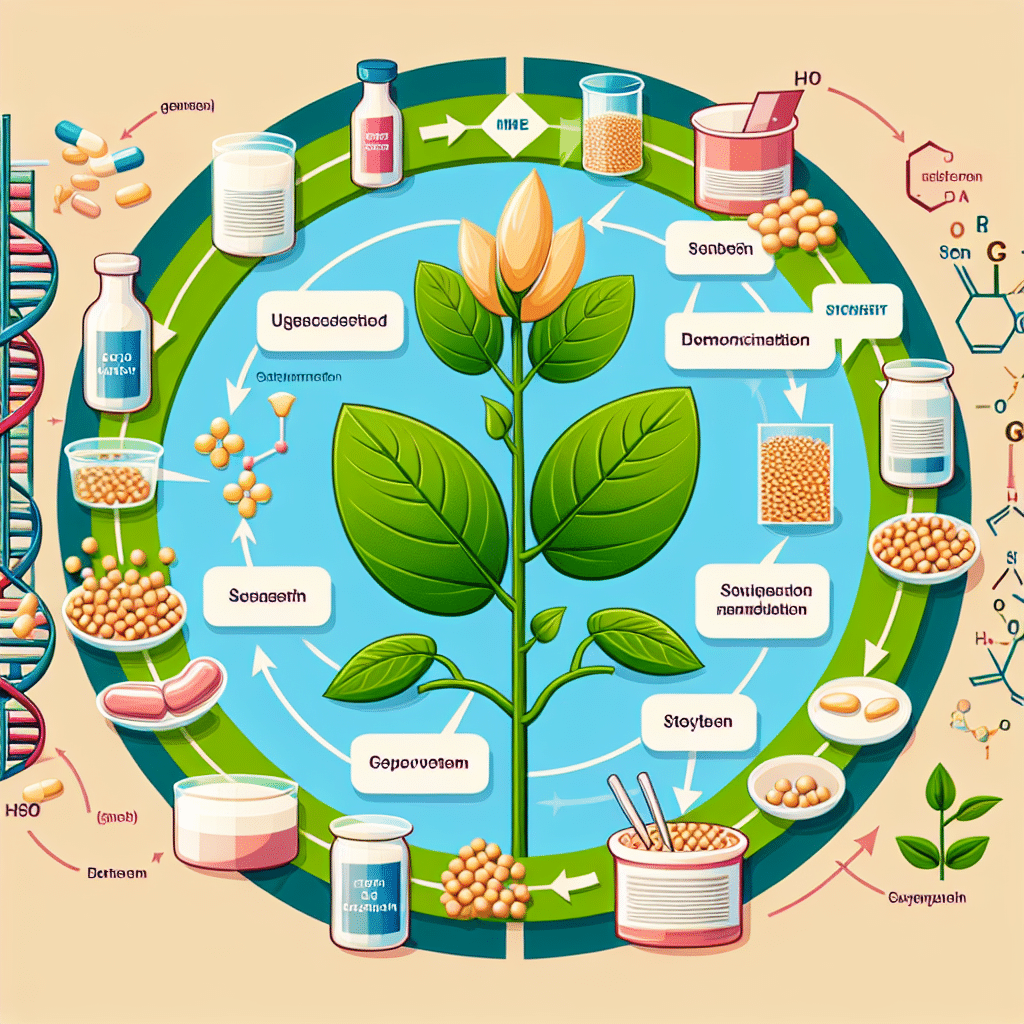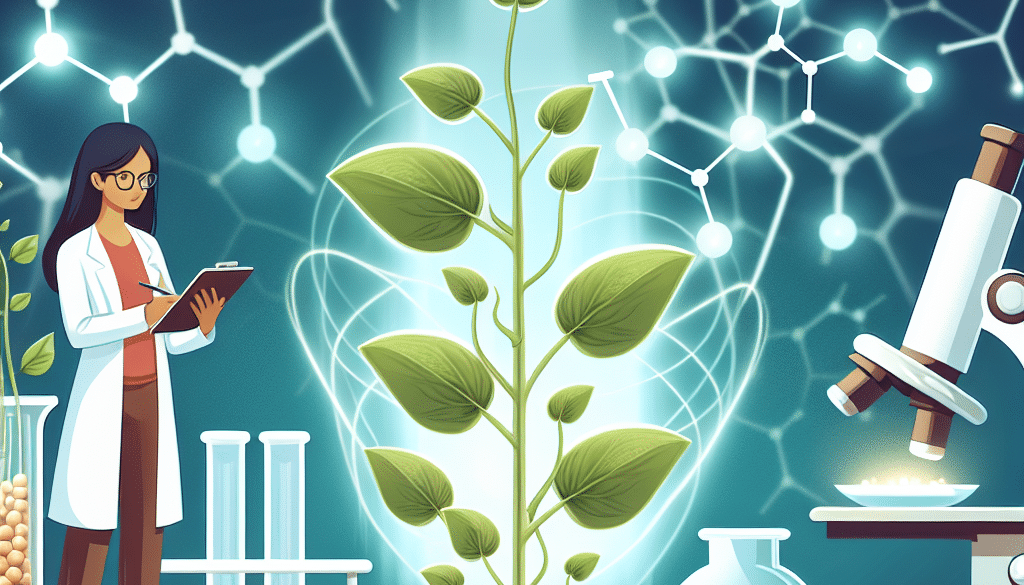Is Soy Protein Genetically Modified?
-
Table of Contents
- Is Soy Protein Genetically Modified? Unveiling the Truth
- The Prevalence of GMO Soybeans
- Understanding Genetically Modified Soy Protein
- Health and Environmental Concerns
- Regulations and Labeling
- Non-GMO and Organic Soy Protein Options
- Case Studies and Statistics
- Conclusion: Making Informed Choices
- Discover ETprotein’s Non-GMO Soy Protein Products
Is Soy Protein Genetically Modified? Unveiling the Truth

Soy protein has become a staple in the diets of many health-conscious individuals and vegetarians, offering a plant-based alternative to animal proteins. However, with the rise of genetically modified organisms (GMOs) in agriculture, consumers have grown increasingly concerned about the origins of their food, including soy protein. This article delves into the question: Is soy protein genetically modified? We will explore the prevalence of GMOs in soy production, the implications for health and the environment, and how consumers can make informed choices.
The Prevalence of GMO Soybeans
Genetically modified soybeans dominate the global market. According to the International Service for the Acquisition of Agri-biotech Applications (ISAAA), soybeans are one of the most genetically modified crops, with 91% of soy grown in the United States being genetically engineered. The primary reasons for this modification are to increase crop yields and resistance to pests and herbicides.
Understanding Genetically Modified Soy Protein
Soy protein is derived from soybeans, which are processed to remove fats and carbohydrates, leaving behind a concentrated protein product. Given the high percentage of soybeans that are genetically modified, it is likely that a significant portion of soy protein available in the market is derived from GMO sources unless specifically labeled otherwise.
Health and Environmental Concerns
The debate over the safety of GMOs is ongoing. Proponents argue that GMOs are safe and can lead to more efficient farming practices, while opponents raise concerns about potential health risks and environmental impacts. Some studies suggest that GMOs may contribute to antibiotic resistance or cause allergic reactions, although these findings are not universally accepted. Environmental concerns include the potential for GMO crops to crossbreed with wild plants, leading to a loss of biodiversity.
Regulations and Labeling
In many countries, including the United States and members of the European Union, regulations require that foods containing GMOs be labeled. This allows consumers to make informed choices about the products they purchase. However, the regulations and enforcement of labeling can vary significantly from one country to another.
Non-GMO and Organic Soy Protein Options
For those looking to avoid GMOs, there are non-GMO and organic soy protein products available. Organic certification typically ensures that a product is non-GMO, as organic standards prohibit the use of genetically modified seeds. Additionally, some products may carry the Non-GMO Project Verified seal, which indicates that the product has been tested and meets the non-GMO standard.
Case Studies and Statistics
Several case studies have highlighted the complexities of GMOs in the food supply. For example, in 2010, a study published in the journal “Food Policy” found that the introduction of GM soy in Brazil led to increased yields and profits for farmers. However, another study in the “Environmental Sciences Europe” journal in 2012 reported that herbicide use increased with the adoption of GM soybeans, raising environmental concerns.
Statistics from the USDA indicate that the adoption of genetically engineered soybeans in the United States has grown from 17% in 1997 to 94% in 2014. This trend underscores the prevalence of GMOs in soy production and the importance of consumer awareness.
Conclusion: Making Informed Choices
While it is clear that a significant portion of soy protein on the market is genetically modified, consumers have options if they prefer non-GMO or organic products. Understanding the implications of GMOs for health and the environment, as well as the regulations surrounding labeling, can help consumers make choices that align with their values and dietary preferences.
Discover ETprotein’s Non-GMO Soy Protein Products
If you’re seeking high-quality, non-GMO soy protein, ETprotein offers a range of products that meet these criteria. Their commitment to non-GMO, allergen-free protein sources ensures that consumers can enjoy the benefits of soy protein without concerns about genetic modification. ETprotein’s offerings are ideal for those in the nutraceutical, pharmaceutical, and food and beverage industries looking for reliable and sustainable protein solutions.
About ETprotein:
ETprotein, a reputable protein and L-(+)-Ergothioneine (EGT) Chinese factory manufacturer and supplier, is renowned for producing, stocking, exporting, and delivering the highest quality organic bulk vegan proteins and L-(+)-Ergothioneine. They include Organic rice protein, clear rice protein, pea protein, clear pea protein, watermelon seed protein, pumpkin seed protein, sunflower seed protein, mung bean protein, peanut protein, and L-(+)-Ergothioneine EGT Pharmaceutical grade, L-(+)-Ergothioneine EGT food grade, L-(+)-Ergothioneine EGT cosmetic grade, L-(+)-Ergothioneine EGT reference grade and L-(+)-Ergothioneine EGT standard. Their offerings, characterized by a neutral taste, non-GMO, allergen-free attributes, with L-(+)-Ergothioneine purity over 98%, 99%, cater to a diverse range of industries. They serve nutraceutical, pharmaceutical, cosmeceutical, veterinary, as well as food and beverage finished product distributors, traders, and manufacturers across Europe, USA, Canada, Australia, Thailand, Japan, Korea, Brazil, and Chile, among others.
ETprotein specialization includes exporting and delivering tailor-made protein powder and finished nutritional supplements. Their extensive product range covers sectors like Food and Beverage, Sports Nutrition, Weight Management, Dietary Supplements, Health and Wellness Products, and Infant Formula, ensuring comprehensive solutions to meet all your protein needs.
As a trusted company by leading global food and beverage brands and Fortune 500 companies, ETprotein reinforces China’s reputation in the global arena. For more information or to sample their products, please contact them and email sales(at)ETprotein.com today.












